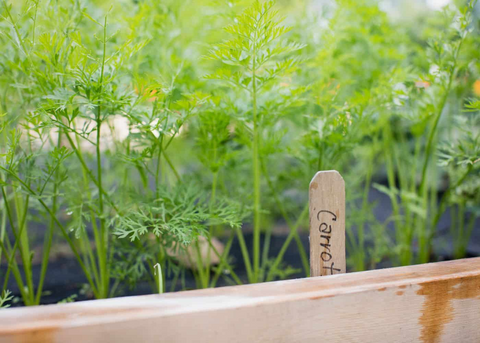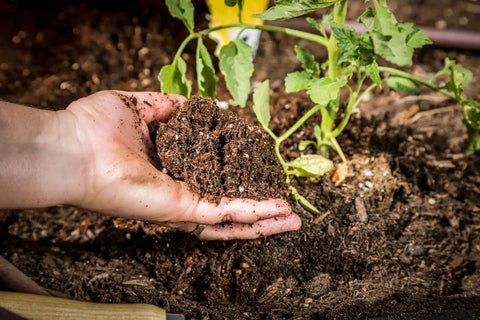Gardening in raised beds is a fantastic way to grow your own fresh produce and flowers. However, like any garden, raised beds can be susceptible to pests that can damage or even decimate your plants. The good news is that there are effective organic approaches to pest control that can help protect your raised bed garden without resorting to harmful chemicals. In this comprehensive guide, we'll explore the world of organic pest control in raised beds, from understanding common garden pests to implementing eco-friendly solutions for a thriving garden.

The Importance of Organic Pest Control
Organic pest control methods prioritize the health and sustainability of your garden. Using chemical pesticides can harm beneficial insects, contaminate soil and water, and affect human health. Organic approaches aim to keep the ecological balance intact while protecting your crops.
Identifying Common Garden Pests
Understanding your adversaries is crucial for effective pest control. Here are some common garden pests you might encounter:
Aphids
These tiny insects feed on plant sap, causing leaves to curl and become distorted.
Slugs and Snails
These mollusks feast on young seedlings and can quickly destroy your plants.
Whiteflies
Whiteflies infest the undersides of leaves, sucking sap and causing yellowing and wilting.
Caterpillars
Various caterpillar species can munch on your plants, leaving behind holes and damage.
Beetles
Beetles like the Colorado potato beetle can defoliate entire plants if not controlled.

Preventative Measures for Pest Control
Healthy Soil
Well-balanced soil with proper nutrients and organic matter can help plants resist pests.
Companion Planting
Planting certain species together can deter pests or attract beneficial insects.
Crop Rotation
Moving crops to different beds each season disrupts pest life cycles.
Beneficial Insects
Attracting ladybugs, lacewings, and other helpful insects can keep pests in check.
Homemade Organic Pest Remedies
Neem Oil Spray
Neem oil is a natural pesticide that can repel and disrupt the life cycles of many pests.
Garlic and Pepper Spray
A mixture of garlic, hot pepper, and water can deter aphids and other soft-bodied pests.
Diatomaceous Earth
This powdery substance, made from fossilized algae, can dehydrate and kill pests like slugs and beetles.
Beer Traps
Buried containers filled with beer attract and drown slugs and snails.
Attracting Natural Predators
Ladybugs
Ladybugs feed on aphids and other soft-bodied pests.
Lacewings
Lacewings are voracious predators of aphids, caterpillars, and other pests.
Birds
Many bird species, such as sparrows, dine on garden pests.
Frogs and Toads
These amphibians can help control slugs, snails, and insects.

Physical Barriers and Traps
Row Covers
Covering plants with fine mesh can prevent pests from reaching them.
Handpicking
Visually inspect your plants regularly and remove pests by hand.
Copper Tape
Applying copper tape around containers can deter slugs and snails.
Sticky Traps
Yellow sticky traps attract and capture flying insects like whiteflies.
Maintaining Garden Hygiene
Regular Pruning
Trimming and pruning can remove affected plant parts and prevent pest spread.
Removing Infected Plants
Isolate and remove severely affected plants to prevent the infestation from spreading.
Cleaning Garden Tools
Sanitize your tools to avoid transferring pests from one area to another.
Composting for Pest Control
Beneficial Microbes
Compost enriched with beneficial microbes can help protect plants from diseases and pests.
Soil Health
Healthy soil with a balanced ecosystem is less susceptible to pest infestations.
Natural Fertilization
Compost provides natural, slow-release nutrients that promote plant health.
Integrated Pest Management (IPM)
IPM is a holistic approach that combines multiple pest control methods:
Monitoring and Thresholds
Regularly inspect your garden and apply control measures only when pest populations exceed predetermined thresholds.
Pest-Specific Strategies
Tailor your pest control methods to the specific pests you encounter.
Regular Inspections
Consistent monitoring and early intervention are key to IPM success.

Challenges and Common Pitfalls
Overlooking Early Signs
Not noticing the early signs of pest infestations can lead to more significant problems later.
Overapplication of Remedies
Applying too many pest control measures can harm beneficial insects and disrupt the ecosystem.
Disrupting Beneficial Insects
Be cautious not to harm the very insects that can help you control pests.
Conclusion: A Pest-Free, Organic Paradise
Controlling garden pests in raised beds organically is not only environmentally friendly but also essential for the long-term health of your garden. By identifying common pests, implementing preventative measures, and using eco-friendly remedies, you can maintain a thriving, pest-free garden that yields bountiful harvests while respecting the delicate balance of nature. So, roll up your sleeves, put on your gardening gloves, and enjoy the organic paradise you create in your raised beds.









